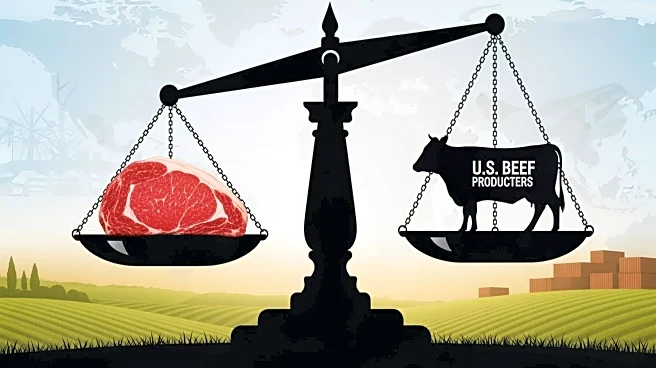What's Happening?
President Trump's plan to increase imports of Argentine beef has sparked discussions about its potential impact on U.S. beef producers and consumers. Glynn Tonsor, an agricultural economist at Kansas State
University, explained that while U.S. beef demand remains strong, the introduction of more Argentine beef could have minimal effects on the market. The U.S. already imports significant volumes of beef to meet consumer demand, particularly for ground beef. Tonsor noted that the U.S. beef industry has made strides in efficiency and quality, which has kept domestic production competitive despite the potential increase in imports.
Why It's Important?
The decision to import more Argentine beef comes at a time when U.S. consumers are facing high grocery prices, including beef. While the move aims to address these price concerns, it also raises questions about the consistency of trade policies, especially in light of recent efforts to promote domestic production. U.S. cattle ranchers may view the increased imports as a threat to their market share, but the overall impact may be limited due to the existing high demand for quality beef. The situation highlights the complexities of balancing consumer needs with domestic industry interests.
What's Next?
As the U.S. continues to navigate its trade policies, the beef industry may need to focus on maintaining its competitive edge through efficiency and quality improvements. The potential increase in Argentine beef imports could prompt discussions on trade policy consistency and the need for clear communication with domestic producers. Stakeholders in the beef industry, including ranchers and policymakers, will likely monitor the situation closely to assess the long-term implications for the U.S. beef market.










